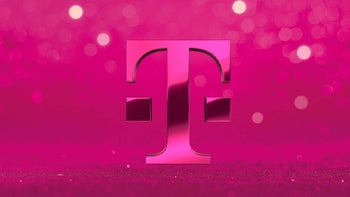U.S. gives ByteDance 90 days to sell its TikTok related assets in the states

Each day takes us closer to the mid-September deadline that marks the end of TikTok in the U.S. thanks to an executive order signed by President Donald Trump. Of course, should Microsoft or another American firm buy the short-form video app's U.S. operations before time expires, the ban goes away. That's because the idea isn't to punish TikTok per se, but to force its China-based parent company ByteDance out of the United States. The fear is that TikTok collects personal data belonging to users, who largely are teens, and sends it to the proverbial server sitting on a desk in Beijing. However, TikTok says that the only servers it sends U.S info to are located in the states and Singapore with the server in the latter country used for backup.
New executive order gives TikTok parent ByteDance 90 days to rid itself of assets used to support its short-form video app
TikTok records videos that are 15 or 60 seconds in length and the content contains the typical teen tomfoolery: lip-synching, dancing, pranks, music, and protests (political and otherwise). The app has 100 million users in the states and over 800 million globally. It has been installed over two billion times from the App Store and the Google Play Store and provides time-killing entertainment to those stuck at home during the pandemic.

Photo shows the Los Angeles headquarters of TikTok parent ByteDance
On Friday, The New York Post reported that the Trump administration continues to put pressure on ByteDance and TikTok by giving the former 90 days to rid itself of any assets used to support TikTok in the states. In his latest executive order, President Trump wrote that there is "credible evidence that leads me to believe that ByteDance … might take action that threatens to impair the national security of the United States." On Friday, Trump's executive order also demanded that ByteDance divest itself of any personal data obtained from TikTok users in the states.
Last week, Trump issued executive orders that banned U.S. companies from doing business with ByteDance and super-app WeChat after a particular date in the middle of next month. The president said at the time that both firms were threats to U.S. foreign policy, national security, and the economy. WeChat is used by over one billion people as an email app, a browser, a messaging app, a shopping app, and an app that makes mobile payments. Should U.S. companies get banned from having transactions with WeChat, Apple would no longer be allowed to distribute it from its App Store which could seriously demolish iPhone sales in China. To show you just how much the Chinese depend on WeChat, a recent survey on Weibo asked 1.2 million people whether they would give up WeChat or their iPhone if forced to choose one. 95% of those surveyed said that they would rather give up their iPhone.
With 20% of global iPhone sales coming from China, banning WeChat from the App Store could backfire horribly on Apple while promoting Huawei sales. This would be the opposite of what the president would prefer to see. And for those wondering if the president has the authority to issue these executive orders, White House press secretary Kayleigh McEnany referred the media to a 1977 law that allows the president to regulate interstate commerce to safeguard the country from unusual events. McEnany, pointing out that the Chinese government can collect personal data from U.S. users of apps like TikTok and WeChat, said, "The administration is committed to protecting the American people from all cyber threats and these apps collect significant amounts of private data on users."
TikTok responded by saying that it spent a full year trying to talk to the U.S. government in good faith. "What we encountered instead was that the Administration paid no attention to facts, dictated terms of an agreement without going through standard legal processes, and tried to insert itself into negotiations between private businesses."










Things that are NOT allowed: